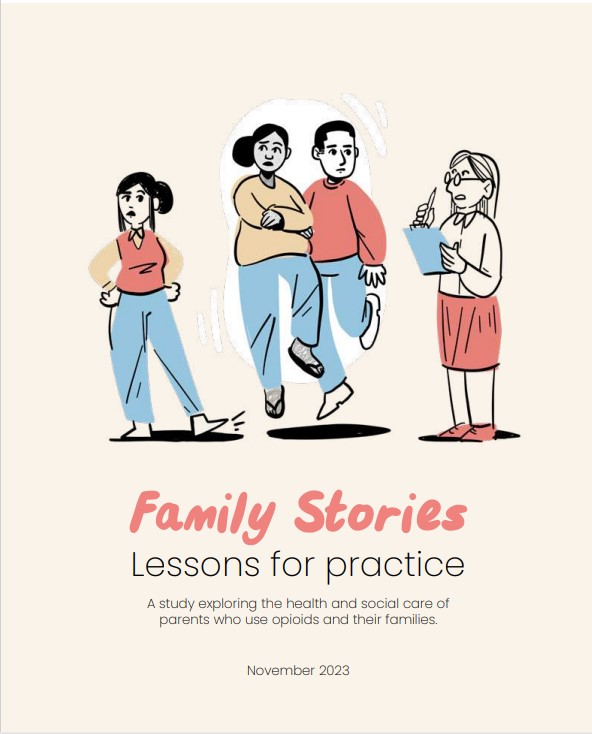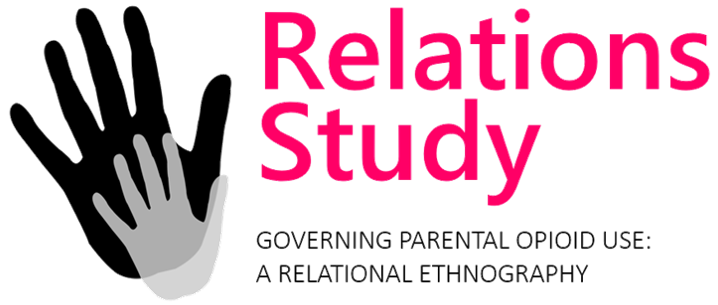Welcome to the Relations Study
Governing parental opioid use: a relational ethnography
The Relations Study aimed to explore the health and social care of parents who use drugs and their families from the perspective of both parents, families, professionals and services. For further information see our study ‘research questions’.
The study used ethnographic methods to observe and investigate practice and relations between parents and services. This included observations of health and social care with families, home visits and interviews with parents, interviews and focus groups with professionals, and the collation of policies and guidance employed in practice.
Led by Professor Anne Whittaker at the University of Stirling, the project included a team of health and social scientists from across the UK and international collaborators in Canada, Australia and the USA (for further information see ‘Who We Are’).
The study began in 2020 and included sites in both Scotland and England. Data were collected between April 2021 and December 2022. Study outputs were developed and coproduced during 2023.
The study was supported by the UKRI Economic and Social Research Council (ESRC) [Grant No: ES/S015809/1] and ethical approval to conduct the study was obtained from the NHS Research Ethics Committee [IRAS No: 279078].
This study website includes information about the study and its findings. Our study outputs are designed for different audiences, including parents, professionals, policymakers and academics.
Please do revisit the website for updates, for example, published papers.
For more information about the project, contact Professor Anne Whittaker, Faculty of Health Sciences and Sport, University of Stirling.
PLEASE NOTE – Study data presented on this website is drawn from our preliminary analysis of the study data in early 2023 and may not be accurate. Final results of our analysis will be published in academic journals. Please see published articles for further information on study participants, methods, analysis and recommendations for policy, practice and future research.
ACKNOWLEDGEMENTS
The research team would like to thank all the parents, families, professionals, and services who took part in the study. The study would not have been possible without their generous commitment, interest and engagement in the study.
We would also like to thank members of our study Learning Alliance, participants and other key stakeholders who helped to develop and produce our study outputs.
We would like to acknowledge the artwork and collaboration of Nifty Fox Creative.
Lastly, we would like to acknowledge the funding and support provided by the UKRI Economic and Social Research Council (ESRC), Grant No: ES/S015809/1

